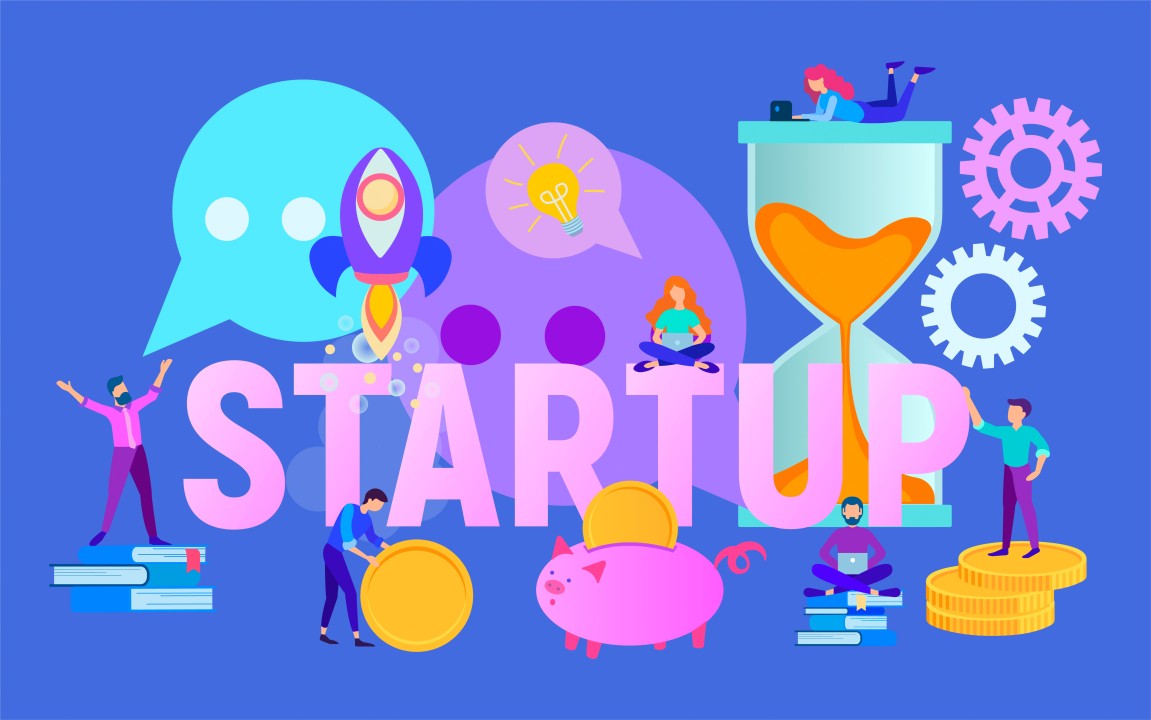Common Errors New Startup Founders Make And How To Overcome Them
Starting a startup is a challenging endeavor. It's a fact that 90% of startups fail, with 10% of them not even surviving their first year. As a startup founder, you're likely well aware of these statistics, and yet, you're forging ahead with determination. Congratulations! I did the same thing six years ago, and now, having successfully sold my company, I've gained some valuable insights that I'm eager to share below. My hope is that by learning from these lessons, you can avoid common pitfalls and increase your chances of success.

- Hiring Full-Time Employees Before Achieving Product-Market Fit
In the words of Marc Andressen, reaching product-market fit is the sole objective that truly matters during the initial years of your company. To put it simply, it's about having a product that people genuinely adore. Until this critical point is reached, you'll likely find yourself experimenting with various ideas, sometimes on a weekly basis. During this phase, anyone other than a co-founder will inevitably grow frustrated with the constant changes in direction, pondering whether the compensation justifies the uncertainties.
- Underestimating the Value of Offshore Talent
Fiscal prudence is crucial in the early stages of a startup. It's no surprise that legendary companies like Google had their humble beginnings in garages. However, one of the most substantial expenses revolves around labor. Given the abundance of high-quality global talent and the collaborative tools at our disposal, hiring offshore talent is a smart strategy for cost savings during the initial phases.
It's important to note, however, that while offshore talent is impressive, they won't proactively resolve issues. Similar to other contractors, they execute tasks based on your instructions. Therefore, it's advisable to engage them for specific and well-defined projects rather than vaguely outlined assignments.
- Holding Onto the Initial Idea for Too Long
Be prepared for the likelihood that your initial idea will fall short. This may sound like a broad generalization, especially considering the passion that drove you to quit your job and launch your startup based on what seemed like a great idea. However, success in the startup world, particularly in the consumer sector, often stems from unique insights that no one else has grasped. Such insights rarely emerge from surveys; they are typically gleaned through a series of failures. Consequently, the key to success lies in swiftly iterating through ideas to gain those crucial insights.
In my case, I fully developed a product based on my initial idea before realizing that people wouldn't embrace it. Employing a simpler approach, such as testing the concept with a landing page, could have conveyed the same message at a significantly lower cost and time investment. It's easy to underestimate the potential of a landing page to capture the essence of your product. If you can't articulate your product's promise in written form and encourage users to sign up, you likely lack a deep understanding of the problem you're addressing and the audience you're targeting.
- Creating an MVP Larger Than Necessary
Many founders hold grand visions for solving complex problems and set out to create an extensive product, even when taking a phased approach. However, developing product form factors like mobile apps or websites is considerably more time-consuming than most anticipate, even when efforts are made to streamline feature sets. Simply setting up a site or app, establishing reliable login and authentication systems, crafting effective onboarding processes, and ensuring responsive layouts consume a significant amount of time—before even implementing a single feature.
A more effective strategy is to identify the smallest product area suitable for testing. This could be something as straightforward as a newsletter, which, in our case, proved to be our initial successful product. Furthermore, this approach incorporates built-in retention, enabling the cultivation of an audience—a pivotal asset when you later introduce a more comprehensive product for testing.
- Neglecting to Secure a Co-Founder Focused on Marketing
The primary attribute that investors seek in a startup is rapid growth, often pegged at 10% month-over-month or more. This growth serves as a reliable signal of product-market fit and a business model capable of scalability. However, achieving such high growth is a formidable challenge that requires ongoing experimentation with various marketing channels and strategies.
A co-founder with a specialization in marketing is indispensable, as their primary focus revolves around driving growth daily, without distractions. In our startup, our core team consisted of a technical co-founder and a product co-founder/CEO. Consequently, neither of us could exclusively dedicate our attention to growth, and we consistently fell short of the desired 10% month-over-month growth rate. When we eventually recruited a marketing-focused co-founder (a decision made five years into our journey), it proved to be a tardy move. Earlier recruitment would likely have resulted in more consistent growth.
RELATED POST
- Ghost Kitchens: Startup Led by Former Uber CEO Enforces Widespread Layoffs, Shuts Down Multiple Sites
- The Importance of Learning from Failure in the Startup World
- Bitcoin Prices Plunge as Stock Market Selloff Spreads to Cryptocurrencies.
- Unlocking the Power of Mindset: 7 Paradigms for Modern Success
- Will Bitcoin Rise Again?
- Vietnam-focused FEBE Ventures announces $75 million second fund.
- 7 Ways to Build A Win-win Relationship With Your Investors
- What Is Nominal Interest Rate?
- Understand the Advantages and Disadvantages of Bootstrapping Vs. Securing Venture Capital
- VAT vs. Sales Tax: 4 Differences Between VAT and Sales Tax
- How to Reduce Customer Acquisition Cost for Your Startup?
- The importance of market research for startups
- Elon Musk's Inspirational Journey: A Visionary Entrepreneur Expanding Horizons
- Key Takeaways From the Crisis Faced By The Most Expensive EdTech Unicorn
- How to Start a Business From Scratch
- Productivity: Time Management Skills for Business Starter
- Best Books for Starting a Business
- How to Transition from Startup to Scaleup
- The 8 Stages of Startup Funding
- Five Tips For Building A Successful Startup Team